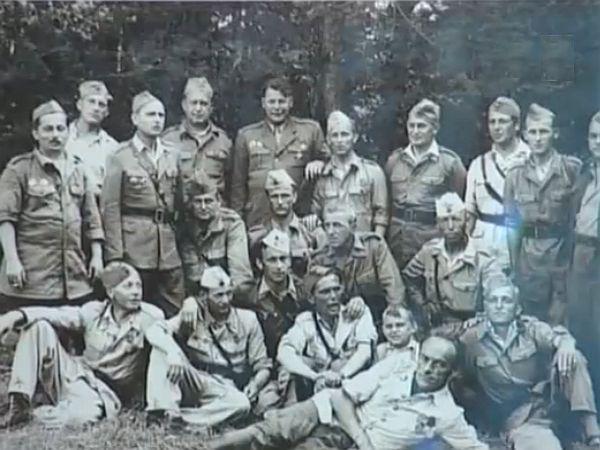
Bing Crosby, Irving Berlin, Bob Hope, Marlene Dietrich, and the Glenn Miller Orchestra all entertained the troops during World War II. At the same time - but in very different conditions -, Slovenian Partisans and civilians were entertained by amateurs and established performers who had gone underground during the Axis occupation of Yugoslavia. Partisan theater was a particularly lively institution throughout the conflict.
The tradition of Partisan drama emerged in the most difficult of circumstances. Clandestine political gatherings in the occupied territories frequently incorporated plays in their lineups. Some of the performances were intended to boost morale; others were all about promoting a Communist revolution, but many were legitimate works of art. They promoted the Partisan cause, but they also made statements about the human condition.
In many cases, the plays were the new works by playwrights who had joined the resistance. One such figure was Jože Tiran, a playwright and an actor who had even spent time in Italian concentration camps. Having worked for Ljubljana’s Drama Theater before the occupation, he eventually became one of the leading lights of Partisan theater.
As World War II, dragged on, ad hoc theater performances became increasingly common, especially in liberated areas. Some of the venues were temporary – a few were founded by fighting units and were held outdoors, illuminated solely by campfires. Others were intended to be more permanent, such as Agitteater set up in the village of Stari Log in the liberated Kočevska region. However, Stari Log was retaken by the Germans before Agitteater could stage its first original play and most of its members ultimately died in battle.
It was in the liberated town of Črnomelj, however, where the largest and most influential theater company was set up in 1944. The Slovenian National Theater, under the artistic direction of Matej Bor, staged 109 performances by Slovenian and foreign playwrights during its existence. Bor, who was both an actor, a playwright, and a director, wrote several plays in Črnomelj, including Težke ure (Difficult Times) and Raztrganci (The Tattered), both of which were translated into foreign languages after the war. The theater even organized acting classes for amateurs.
The Slovenian National Theater eventually had to be disbanded because of planned troop movements in the area, but it was reestablished in Ljubljana after the war. Most of the wartime actors and playwrights found full-time employment in the new theater company. It remains one of the country’s leading cultural institutions and proudly carries on the legacy began in the difficult conditions of World War II.

































































